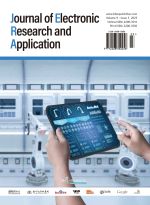Abstract
With the rapid development of modern science and technology, the era of artificial intelligence has quietly come. Against the background of the new era, students’ learning needs, learning resource acquisition methods, teachers’ teaching concepts, teaching tools, and so on have changed significantly. How to carry out teaching reform based on this change has become one of the important issues facing educators, and the same is true for the teaching of computer programming courses. This paper focuses on the teaching reform of AI-enabled computer programming courses, analyzes its basic problems, and puts forward corresponding reform countermeasures to provide a useful reference for front-line teachers.
References
Zhang Y, Tang L, Ma C, 2023, Research on Paths and Countermeasures of Artificial Intelligence Boosting Teacher Development. Audio-visual Education Research, (10): 104–111.
Jiang L, Wang Z, Ge S, 2023, Discussion on Integrating Artificial Intelligence Technology into Embedded System Curriculum Teaching. China Modern Educational Equipment, (17): 10–12.
Lu J, Ren H, Gu D, et al., 2020, Student-centered Hierarchical Experimental Teaching Reform of Programming. Computer Education, (11): 174–178.
Cai T, 2023, Research on Problem-solving Teaching Mode based on Computational Thinking, dissertation, Northwest Normal University.
Li J, Tang N, Yu J, 2022, Exploration on Multi-level Backward Inquiry Teaching of Artificial Intelligence Programming Course Based on Practice. Computer Education, (10): 145–149.
Deng W, Yang X, Gao Q, et al., 2023, Research on Classroom Teaching Evaluation Model Supported by Artificial Intelligence. China Educational Informatization, 29(8): 3–14.
Bian J, Cao H, Liu L, 2023, Analysis of Personalized Teaching Model based on Big Data Analysis. Integrated Circuit Applications, 40(8): 362–363.
He Y, Wang C, 2020, Flipped Classroom Teaching Practice of C Language Programming based on MOOCs. Computer Education, (1): 160–163.
Deng Z, Li F, Chen X, et al., 2022, Reform of the Teaching Mode of Programming Courses by Strengthening the “High-levelness, Innovativeness and Challengingness.” Computer Education, (11): 82–86.
Li Q, Kang J, Feng J, 2023, Analysis of Hierarchical Teaching Strategies in Programming Curriculum. Applications of Integrated Circuits, 40(7): 202–203.
Yu Y, 2024, Research on Teaching Reform and Practice of Artificial Intelligence Empowerment C++ Programming Course. Computer Knowledge and Technology, 20(35): 178–180.
Qin T, 2021, Characteristics of Vocational Students’ Learning Ability and Ways of Improvement in the Context of Artificial Intelligence Education. China Vocational and Technical Education, (20): 88–92.
Yang X, 2024, Exploration on Teaching Reform of New Engineering Information Majors based on Artificial Intelligence Technology. Wireless Internet Technology, 21(2): 107–110.
Zhang Y, 2024, Research on Teaching Reform based on Python and Artificial Intelligence for Electrical Majors. China Educational Technology Equipment, (4): 62–64.
Mai L, Fan M, 2022, Analysis on Professional Construction of Higher Vocational Colleges in the Era of Artificial Intelligence. Vocational and Technical Education, 43(4): 46–52.
